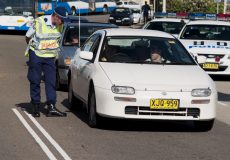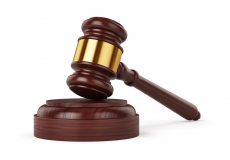Affray and Public Violence Lawyers in NSW
Our Criminal Law Team can assist you with matters related to affray and public violence, we have the experience and expertise necessary to ensure you receive the best possible outcome.
We’ve been defending the people of Newcastle, Lake Macquarie, Central Coast and the Hunter region since 1969 and have helped our clients to achieve the best possible outcomes in all Criminal Law matters.
We are used to dealing with the Police and know all the ‘ins and outs’ of the Courts and Justice system.
If you have been charged with affray, contact our Criminal Law Team today to book a teleconference or appointment. We’ll fight vigorously to protect your freedom and rights.
What is an ‘Affray’ offence and what are the penalties?
Separated from other forms of assault…
Affray is an offence whereby a person uses or threatens violence toward another, which would cause a person of reasonable firmness present at the scene to fear for his or her safety.
Other people fearing for their safety is the main difference between assault and affray.
Common examples of ‘Affray and Public Violence’ include:
- Fighting inside a pub or bar (the patrons would fear their safety)
- Road rage (the drivers would fear their safety)
- Participating in a violent public demonstration (the bystanders would fear their safety)
- Threatening to punch a co-worker (the workers would fear their safety)
Affray and the offence of riot are offences under Section 93(b) an 93(c) of the Crimes Act. If two or more persons are present and they use or threaten violence, the conduct of those two people is taken into consideration collectively by the Court for the purposes of both parties’ actions.
The offence of Affray would normally be dealt with in the Local Court, unless an election is made for trial in the District Court. The maximum penalty that can be imposed is two years imprisonment for affray, however, if an election is made to the District Court, the maximum penalty of imprisonment is ten years.
When determining an appropriate sentence for the offence of Affray, the actions of the person being sentenced has to be considered in the context of the behaviour of the co-offender.
If such behaviour occurs where 12 or more persons are present, a person may be found guilty of riot under Section 93(b) of the Crimes Act. Unless an election is made, the offence of riot will be dealt with in the Local Court, where the maximum penalty is two years imprisonment, however, if an election is made to the District Court, the maximum penalty of imprisonment is 15 years.
A person is guilty of riot only if the person intends to use violence or is aware that his or her conduct may be violent and the person is only guilty of Affray if the person intends to use or threaten violence, or is aware that their conduct may be construed as being violent or threatening.
 Liability limited by a scheme approved under Professional Standards Legislation
Liability limited by a scheme approved under Professional Standards Legislation

















































